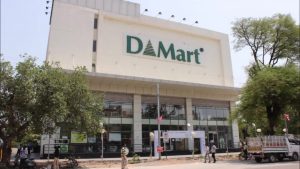The IPO of Avenue Supermarts, which runs the supermarkets chain under the brand name DMart, is much-awaited issue in the retail sector in a decade.
According to reports, Avenue Super Markets is looking to raise around Rs 1,800 crore and riding on a rich Valuation of close to $1 billion, or Rs 6,700 crore. The price band and date for subscription issue hasn’t been announced yet. But in the grey market, Avenue Super Markets shares were quoting a higher premium of Rs 140-150 per share way over its estimated price band. The grey market is a pseudo for over-the-counter market, where IPO shares are traded before the official listing on a stock exchange.
DETAILS ABOUT THE D-MART IPO :-
Issue Opens On: Wednesday March 8th, 2017.
Issue Closes On: Friday March 10th, 2017.
Issue Type: 100% Book Building.
Issue Price Band: Rs.295 to Rs.299 per share.
Discount: No Discount to Retail Category Only.
Face Value Per Share: Rs.10.
Minimum Bid Lot: 50 Equity Shares and in multiples of 50 equity shares thereafter.
Minimum Order Value: Rs.14,750 to Rs.14,950.
Issue Size: Rs.1,800 crore.
Number of Shares Offered: 4,43,72,882.
Proposed Listing: Bombay Stock Exchange and National Stock Exchange.
Lead Managers: Kotak Mahindra Capital Company Limited, Axis Capital Limited, Edelweiss Financial Services Limited, HDFC Bank Limited, ICICI Securities Limited, Inga Capital Private Limited, JM Financial Institutional Securities Limited, Motilal Oswal Investment Advisors Limited and SBI Capital Markets Limited.
Registrar: Link Intime India Private Limited.
Company Promoters: Radhakishan S. Damani, Gopikishan S. Damani, Shrikantadevi R. Damani, Kirandevi G. Damani , Bright Star Investments Private Limited, Royal Palm Private Beneficiary Trust, Mountain Glory Private Beneficiary Trust, Bottle Palm Private Beneficiary Trust, Gulmohar Private Beneficiary Trust and Karnikar Private Beneficiary Trust.
ADVANTAGES OF D-MART :-
1). Strong Distribution Network – the Company had a network of 21 distribution centers and 6 packing centers in Maharashtra, Gujarat, Telangana and Karnataka.
2). Avenue Supermarkets after IPO will also utilize more funds for Investing further in their IT and data management systems to improve productivity and time savings thereby increasing their operating efficiency which will help to strengthen and synergize their relationships with their suppliers through cooperation and closer coordination.
3). Since it started its operations, D-Mart has not shut a single store and more recently, also became the first retailer to cross the billion-dollar market profitably. Out of the all the stores it runs, D-Mart owns majority of the properties, which helps them to save a huge chunk of money on rent.
4). Strong Track Record of Growth and Higher Profitability – D-Mart’s total revenue grew at a CAGR of 35.28% from Rs. 4,702.33 Cr. in FY 2014 to Rs. 8,606.11 Cr. in FY 2016. The Company’s net profit after tax grew at a CAGR of 41.08% from Rs. 161.37 Cr. in FY 2014 to Rs. 321.21 Cr. in FY 2016.
5). IPO will help them to strengthen their market position by expanding their store network in existing clusters as well as new clusters.
D-Mart is a Consumer based Business which has a hardcore retail chain model in Cost Leadership as it gives fast and timely payments which is in 15 days to its suppliers. Its main Unique selling preposition is giving variety of new and day to day offers, discounts, rewards to its customers compared to its peers.
D-Mart have ROE more than 20 percentage and expected to launch its IPO with higher valuations of 18,000 crores or equivalent to 40x FY2017PE. Indian Organized Retail Sector has very bright future and seeing on a past performance of company which is growing 21 % anually and estimated to grow more than 30% per anum for the next 10 years which will make one of the largest retail player in times to come. Thirty-five percent of the issue will be available to retail investors, 50% to qualified institutional buyers or QIBs and 15% to non-institutional bidders on a “proportionate basis”
CHALLENGES TO D-MART :-
Many market researchers are concerned that being in a retail sector it is more depended on manpower resource and they have more of the staff in the company on a contractual basis and giving them attractive packages on a commercial basis is less favorable.
One of the major concerns is they still do not operate on pan india level basis and after the IPO they would be focusing more on other Cities and States in India where they still do not have presence. Currently they have “18 out of its 21 distribution centres are located in Maharashtra and Gujarat. It may continue to open more stores in Maharashtra and Gujarat. But when Shifting their focus to new clusters will make their competitors comfortable to gain market share of current clusters.
